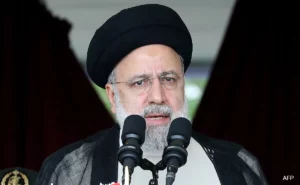Xi Jinping’s War on Billionaires: Corruption or Purge of Critics?

china
Xi Jinping’s campaign against billionaires in China has sparked intense debate regarding its true motivations—whether it is a genuine anti-corruption effort or a strategic purge of potential political rivals. This complex situation reflects broader themes of power consolidation, economic control, and the balancing act between state authority and capitalist enterprise.
Background of Xi’s Anti-Corruption Campaign
Since Xi Jinping took office in 2012, he has spearheaded an extensive anti-corruption campaign, which he described as vital for the Communist Party’s survival. This campaign, characterized by the slogan of targeting both “tigers” (high-ranking officials) and “flies” (lower-level bureaucrats), aims to root out corruption that has proliferated in the wake of China’s rapid economic reforms since 1978. Xi’s rhetoric emphasizes that corruption poses an existential threat to the party, and he has made it clear that no one is above the law, regardless of their wealth or influence.
The War on Billionaires
In recent years, Xi’s focus has increasingly shifted towards China’s ultra-wealthy class. High-profile cases, such as the investigations into Alibaba’s Jack Ma and the abduction of billionaire Bao Fan of Renaissance Holdings, illustrate the precarious position of billionaires in Xi’s China. These actions have led to significant losses in market value for affected companies and have raised concerns about the future of foreign investment in China, as the environment becomes increasingly hostile for both domestic and international businesses
Rhetoric of “Common Prosperity”
Xi’s push for “common prosperity” serves as a cornerstone of his strategy. This initiative aims to redistribute wealth and reduce income inequality, which has become a pressing issue in a country where the wealth gap is among the highest globally. In a speech, Xi called for the regulation of excessively high-income groups and urged businesses to contribute more to society. This rhetoric has been interpreted as a thinly veiled justification for targeting billionaires, who are often viewed as symbols of inequality and capitalist excess.
Motivations Behind the Crackdown
The motivations behind Xi’s actions can be viewed through two primary lenses: anti-corruption and political consolidation.
Anti-Corruption or Political Purge?
- Anti-Corruption: Proponents of the anti-corruption narrative argue that Xi is genuinely committed to eradicating corrupt practices that undermine the party’s legitimacy. The crackdown on billionaires is seen as a necessary step to restore public trust and ensure that the economic elite do not wield disproportionate power over the state.
- Political Purge: Critics, however, contend that the campaign is more about consolidating Xi’s power and eliminating potential threats. Many of the targeted billionaires have been vocal critics of the government or have amassed enough influence to challenge Xi’s authority. For instance, the downfall of figures like Jack Ma, who once enjoyed a close relationship with the party, suggests that dissent, rather than corruption, may be the primary driver of these crackdowns
Economic Control vs. Capitalist Growth
The relationship between the state and the capitalist class in China is fraught with tension. While the Communist Party has embraced capitalism to fuel economic growth, it remains wary of the power that wealth can confer. Xi’s approach reflects a desire to maintain control over the economy while still benefiting from the innovation and investment that billionaires can provide. This balancing act is complicated by the need to project an image of equality and social justice to the Chinese populace, who are increasingly frustrated with the stark wealth disparities.
Conclusion
Xi Jinping’s war on billionaires encapsulates the complexities of governance in modern China, where the lines between anti-corruption efforts and political purges are often blurred. As Xi continues to consolidate power, the outcomes of this campaign will likely have profound implications for China’s economic landscape and its relationship with the global market. Whether seen as a genuine effort to combat corruption or a strategic maneuver to eliminate dissent, the repercussions of Xi’s actions will resonate throughout the Chinese economy and beyond.






